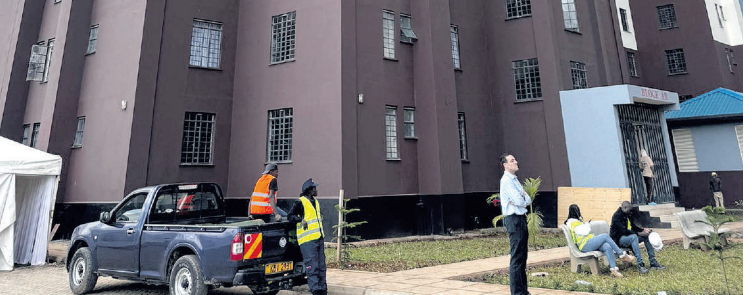

When we were young, we used to tease each other about the type of houses our families owned. If one came from a house made of mud, they were considered poor, while those who had mabati, scrap-wood, or in rare circumstances, stone houses, were considered rich.
It’s interesting that this thinking has been domiciled in our Means Standards Instrument for processes such as Taifa Care and the new funding model for university education. Home ownership therefore is a very critical aspect of our lives, going by the 3 basic needs of food, clothing and shelter.
It is for this very reason that The Beta Plan has the Affordable Housing Pillar that has been able to democratise home ownership, which therefore, has been a preserve of the salaried.
The environment has been so regimented in that; our economy could only generate about 50,000 mortgages against an annual housing shortage of over 200,000 houses.
Owing to the rapid urbanisation, our cities are churning out neighborhoods that are becoming slums, including erstwhile middle-income areas such as Buruburu. It is true that this is also the case in our rural areas, as more and more land fragmentation is leading to rural slums, where people are living in fairly squalid conditions.
Take the case of Embakasi South constituency. Most of the people live in slums such as those from Mukuru. While the 4th administration prioritised the development of Common User Facilities in Mukuru such as hospitals and roads President Ruto has prioritised actual home ownership, and as a result, 1,080 studio units are now ready for occupation.
There are three types of houses in this programme namely; social, affordable and affordable middle-class houses.
The prices are incredible, with the social housing that is targeting those living in slums going for as low as Sh640,000, with a rent-to-own monthly payment of Sh3,900 for Kenyans earning less than Sh20,000. This is unprecedented.
Agoso Simon has stayed in Mukuru for more than 20 years, without owning a home, due to the nature of his job as a casual labourer. Today, he is a happy head of a household since his children are now secure, thanks to the studio apartment that has been assigned to him.
Erick Francis is an electrician who used to hustle everyday looking for work. This is now a thing of the past as he has been able to find a job for the past six months at the Mukuru Housing Project.
Nzomo, who works as a mason, can now proudly declare that he is not just helping others to achieve their home ownership journey, but that as he puts together the building blocks to make a path from one high-rise to another, he too is paving his pathway for his family’s home ownership.
Isn’t it amazing that those who help us to build our mansions and villas, cannot afford to claim the same dignity that comes with the very ownership! Indeed, upon completion, the same persons are rarely allowed to visit such premises.
However, with the Affordable Housing Programme, they too are helping in not only building decent homes, but also in ‘occupying’ them.
Bibiana Wambua, a grandmother narrates of how she ended up owning a home at Marigu-ini in Mukuru. She heard about affordable housing programme from the area MCA and the chief and from the media.
She then went to the cyber café to apply through Boma Yangu, a process that she says is impersonal and therefore transparent, as the computer does not ‘know’ anyone, hence eliminating human agency and most importantly, patronage.
She opines that as a result of the AHP, the area now has electricity and that the residents don’t have to use solar or torches at night. Further, security for the children going to school has been enhanced and that they now have clean, piped water, which wasn’t the case before. David Ndirangu, the area chief observes that there used to be at least three fire incidences per month owing to the poor living conditions. This has now changed.
It’s true to say that the AHP programme is one of the most empowering initiatives by the government to dignify the undignified.
The creation of capital and generational wealth is phenomenal since home ownership is helping in asset building for people who if left to market forces, they would not have owned any form of substantive property.
The programme is regenerating our cities, and also creating new markets and small towns due to the clustering of at least 220 houses per project in nearly every constituency across the country, within integrated development plans such as the Koginga Fish Market and the mini port on the shores of Lake Victoria in Homa Bay county.
The 5th Administration aims at building over one million houses in five years; thus sheltering more than five million people, hence literary lifting them from poverty.
If you are a Kenyan and still doubt, get yourself a house through the Boma Yangu platform that currently has over 689,000 people registered. This is the biggest database of home ownership in the country since independence. Over 700,000 housing units are at different stages of design and development across the country.
Start your home ownership journey now. It is possible!!
The writer is the
Government of
Kenya spokesman










